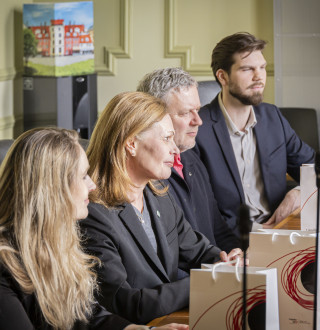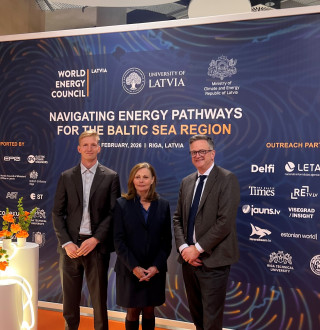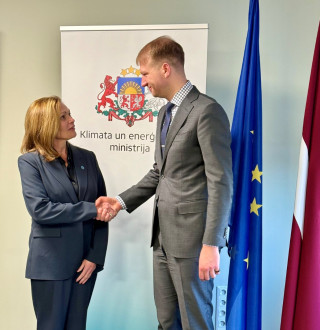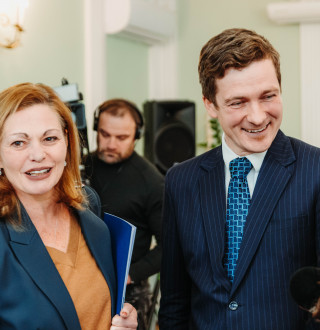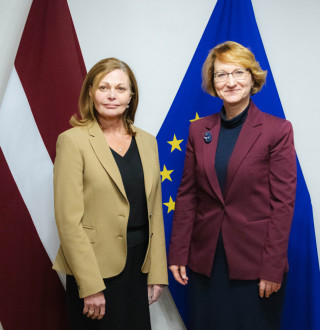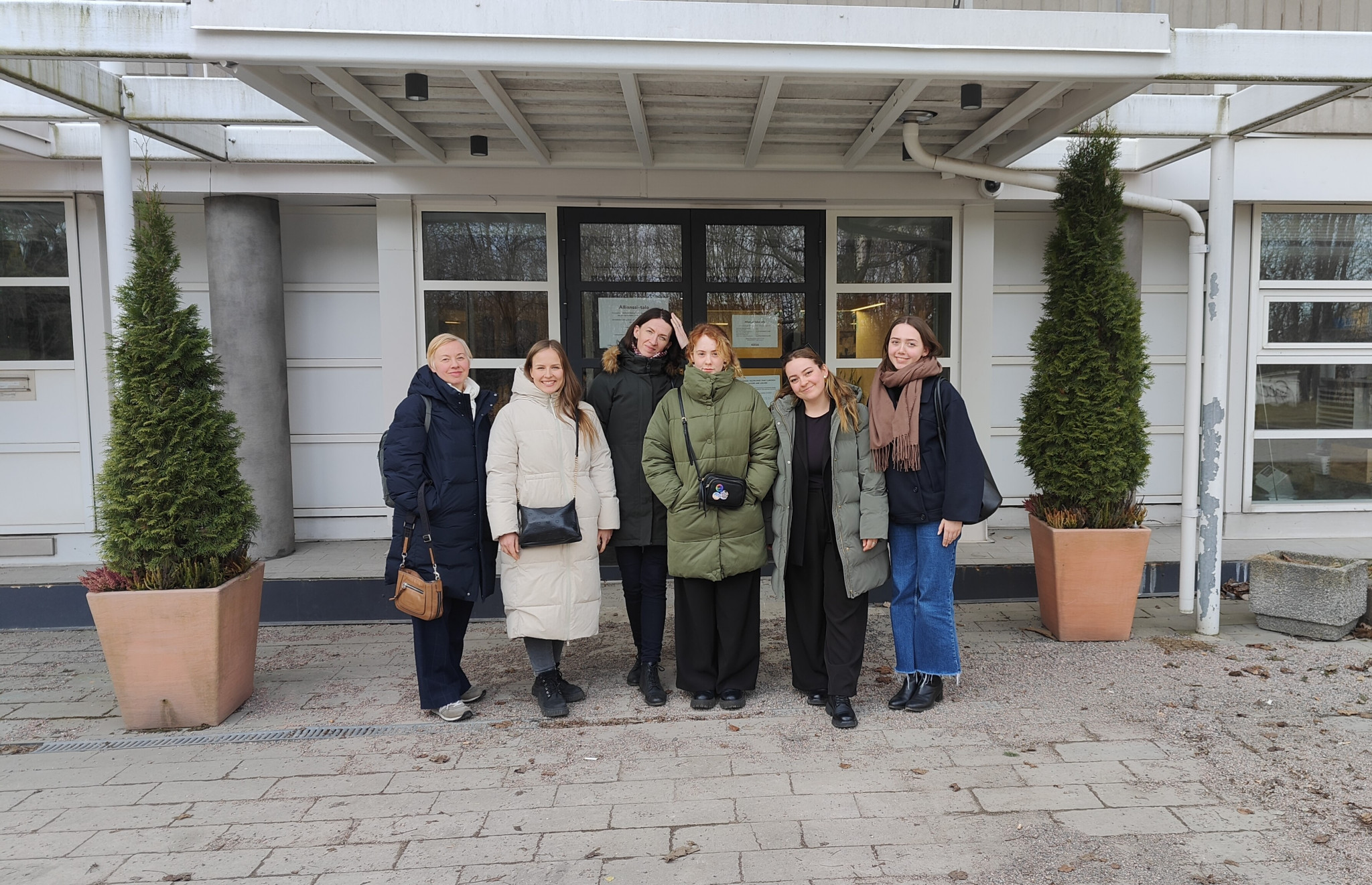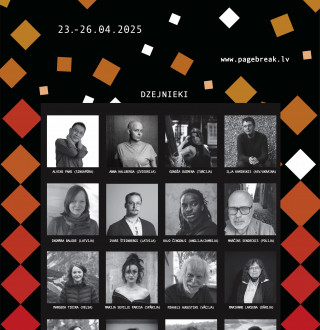Between March 26 and 28, the team behind the Latvian pilot project Signal elections (in Latvian – Signālvēlēšanas) travelled to Helsinki to explore the Finnish youth election system and meet representatives of key institutions for insights and recommendations. The delegation included representatives from the European Movement in Latvia, the National Youth Council of Latvia, the Ministry of Education and Science, the youth organisation Club “The House”, Creative Minds for Culture, and the Nordic Council of Ministers’ Office in Latvia.
The Signal Elections project in Latvia is currently preparing for its main event – digital mock elections, which will take place from 19 to 31 May. Purpose of the visit was to have a closer look and learn from the Nordic experience. The Finnish National Youth Council and Youth Sector (FYCS), has been organising youth elections since the 1990s, making it an invaluable source of knowledge and inspiration.
During the visit to FYCS, the delegation met with Silja Porkkala, Project Manager for Finnish youth elections, who shared valuable insights into both the practical implementation and guiding principles of their initiative. The mission of the organisation is to offer young people a realistic election experience and guide them as they research candidates and cast their votes on election day. Complementing the elections is a “Week of Politics”, a dedicated period during which youngsters explore Finnish politics, decision-making processes, and legislation structures, deepening their understanding of how their vote and democratic participation in general impacts governance.
FYCS is the administrative body overseeing the Ungas Val project, which is financed by the Nordic Council of Ministers’ Office. Running through to the end of 2025, the project aims to collect comprehensive data on school elections across three Nordic countries – Denmark, Finland and Norway. The project will culminate in a final report offering concrete, evidence-based recommendations on how school elections can strengthen young people’s democratic engagement and civic competence across the Nordic region. The findings will be presented at a joint concluding seminar in late 2025.
The delegation also had the opportunity to observe actual youth elections at Töölö Secondary School in Helsinki. The event was organised by volunteers with the support of teachers, and pupils themselves acting as election officials – guiding their peers through the voting process. To participate, voters entered a designated voting room where, in line with official electoral procedures, their names were checked against the list of eligible voters. They were then issued a ballot and directed to vote in one of the private booths. Once completed, the ballot was sealed and placed in the ballot box. This process differs from the online voting method to be used in the upcoming Signal Elections in Latvian schools. While digital, the Signal Elections system is designed to replicate the structure of real elections. The platform incorporates interactive features such as animated guides and realistic ballot formats to ensure participants experience an authentic and engaging simulation of the democratic process.
Another stop on the tour was at the Finnish Parliament meeting Mikko Tujula, Democracy Education Specialist. He shared valuable insights into current and forthcoming initiatives aimed at enhancing democratic literacy in Finland. One such initiative is the Parliament Game (Eduskuntapeli), launched in January by the Finnish Parliament. This interactive tool is designed to introduce children to the fundamentals of lawmaking, the national budget, and parliamentary procedures in an engaging and accessible way. The game is available free of charge for everyone, and it can be accessed here (in English, Finnish and Swedish).
In addition to the above meetings, the delegation also presented highlights on the project to the Ambassador of Latvia to Finland, H.E. Dace Treija-Masī, and enjoyed a guided tour of the Helsinki Central Library Oodi.
Viktorija Tkačenko, Project Coordinator at the Department of Policy Initiatives and Development of the Ministry of Education and Science of the Republic of Latvia, shared her impressions on the tour:
This trip highlighted the importance of providing youth with hands-on experiences that deepen their understanding of democracy, encouraging active participation in political processes both now and in the future. I believe initiatives such as the Week of Politics and the Parliament Game could be very beneficial if implemented in Latvia as well.
The week of the Signal Elections is rapidly approaching. Currently, the young voters participating in the election at the end of May are familiarising themselves with party programmes. Digital voting will take place from May 19 to 31, and results will be published on June 7 at 20:01. This visit to Finland has provided partners of the Signal Elections project valuable insights on how to foster greater youth engagement in democratic processes. As the project progresses, the lessons learned from the Finnish experience might serve as a catalyst for increasing youth electoral participation in Latvia, helping to create a more informed and active generation of future voters.
Project partners
The European Movement in Latvia and the Latvian Youth Council are the main partners in the project and provide content, methodology, and organise the overall activities during the project. The Nordic Council of Ministers’ Office in Latvia – transfers the Nordic best practices and is financially supporting the project. The youth organisations Club “The House” and Creative Minds for Culture organise workshops for young people to educate them about issues related to the elections in a democratic society. Whereas the Ministry of Education and Science is providing informative and communication support to schools, teachers and school headmasters.
